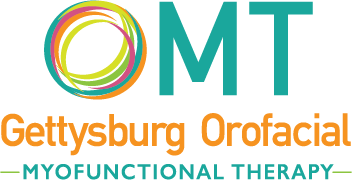Do I Have Sleep Apnea?
Are restful nights and energized days few and far between? You may suffer from sleep apnea, which affects millions of U.S. adults and disrupts quality of life. At Gettysburg Dental Associates, we understand the profound effects of sleep apnea on your well-being. In this blog post, we'll explore the signs, symptoms, and effective solutions to help you sleep and feel better.
Recognize the Signs & Symptoms
Sleep apnea is more than just snoring; it's a serious condition that disrupts the regular breathing pattern during sleep. There are two types of sleep apnea: obstructive sleep apnea and central sleep apnea.
- Obstructive sleep apnea is most common and occurs when the upper airway becomes blocked while sleeping, reducing or preventing airflow. Anything from obesity to changes in hormone levels can increase your risk.
- Central sleep apnea occurs when the brain does not send the signals needed to breathe. Several health conditions may affect how your brain controls your airway, causing central sleep apnea.
Recognizing these signs and symptoms is the first step toward effective treatment:
- Loud Snoring: One of the most common indicators of sleep apnea is persistent, loud snoring. If your snoring is disruptive and accompanied by pauses in breathing, seek professional guidance.
- Frequent Awakening: Individuals with sleep apnea often wake up abruptly throughout the night, gasping for breath. These interruptions can lead to fragmented sleep and daytime fatigue.
- Excessive Daytime Sleepiness: Feeling too tired during the day, despite what seems like a full night's sleep, may be a sign of sleep apnea. Chronic sleepiness can impact your daily activities and overall quality of life.
- Morning Headaches: Waking up with frequent headaches may result from oxygen deprivation caused by interrupted breathing during sleep.
Explore Your Options
The good news is there are effective and personalized treatments for sleep apnea. If you suffer from mild to moderate sleep apnea symptoms, your dentist or doctor may explore one of these options:
- Custom Oral Devices: Custom-made oral devices reposition the jaw and tongue, preventing airway obstruction during sleep. These devices are comfortable, easy to use, and highly effective in reducing symptoms.
- Continuous Positive Airway Pressure (CPAP): This machine helps keep the airway open by delivering a continuous stream of air.
- Surgical Implants: Approved by the FDA, these are more invasive but highly effective in stimulating the hypoglossal nerve to activate the nerves in the throat that keep the airways open during sleep.
- Physical Therapy: Exercises for the mouth, like orofacial therapy, can help improve muscle tone and coordination by strengthening and repositioning the tongue and muscles that control your lips, tongue, upper airway, and face.
- Additional Surgical Procedures: There are other surgical options available, including adenotonsillectomy to remove the tonsils and adenoids, upper or lower jaw advancement to move the jaw forward, surgery to remove tissue to help make the airway bigger, and more.
Learn About Our Treatment Process
The journey to better sleep begins with a comprehensive evaluation of your health and medical history to create a tailored treatment plan for your needs. We'll take impressions of your mouth and teeth, using them to create a personalized oral device. Your appliance will be fitted and adjusted during office visits, ensuring optimal comfort and effectiveness.
Wearing the oral device each night is crucial for effective treatment. Patients often find these devices remarkably comfortable, allowing for uninterrupted sleep without the disruptions caused by sleep apnea.
If you're experiencing signs of sleep apnea or have questions about treatment options, contact Gettysburg Dental Associates. Our dedicated staff is ready to provide the support and information you need to achieve restful night sand an improved quality of life. Don't let sleep apnea control your days—take the first step toward more rejuvenated and energized living.






